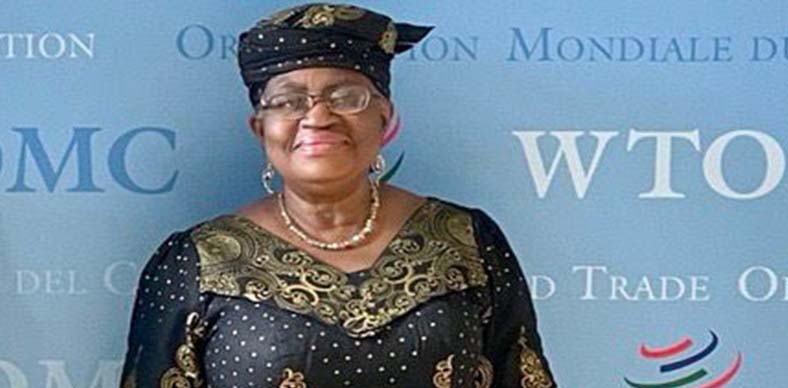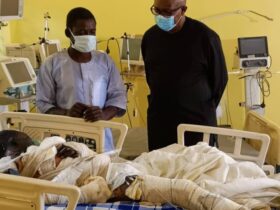
The Director General of the World Trade Organisation, Ngozi Okonjo-Iweala, on Tuesday, said Nigeria had relinquished its leading position in the agriculture export market.
Ngozi Okonjo-Iweala, disclosed this at the launch of seven trade support programmes initiated by the WTO-ITC to boost the development of Nigeria’s trade and industry standards in Abuja.
She also said that despite the abundance of land and increased investments, the nation has transitioned into a net importer of farm produce that was previously cultivated domestically, undermining efforts aimed at ensuring food sustainability.
She said, “We are launching today with STDF, ITC, and the NEPC, a project to help with international safety and quality certification for sesame and cowpeas or black-eyed peas.
“The agriculture sector in Nigeria has the potential to be a major driver of export diversification and job creation – but too much of this potential remains unrealized due to a variety of barriers.
“In fact, Nigeria has not only lost out in agricultural export markets, it is a net food importer, spending about billions a year on goods, many of which we can also produce here.
“Some of Nigeria’s unrealized potential has to do with trade-related problems on the supply side – and that is what this project is seeking to rectify.”
She further stated that Nigerian cowpea and sesame exports have increasingly faced rejections in several destination markets due to non-compliance with international SPS requirements.
She said the failure to comply with regional, global and import country sanitary and phytosanitary standards has resulted in loss of sales, revenue, and hard currency due to export rejects.
She said, “Nigeria is the world’s largest producer and consumer of cowpeas. Sesame is primarily an export crop, and Nigeria is the world’s fourth leading producer, exporting to the EU, Türkiye, Japan, South Korea and other Asian markets. However, Nigerian cowpea and sesame exports have increasingly faced rejections in several destination markets due to non-compliance with international SPS requirements.
“Nigeria accounts for over a third of Japan’s sesame imports – but health and safety inspections during the past few years have found instances where pesticide residue levels were nearly double the maximum residue limits permissible from 2019 to 2021.”
To tackle the challenges, Okonjo-Iweala noted that WTO is partnering with relevant stakeholders to build the capacities of stakeholders across the sesame and cowpeas value chains to better understand market access requirements.









Leave a Reply